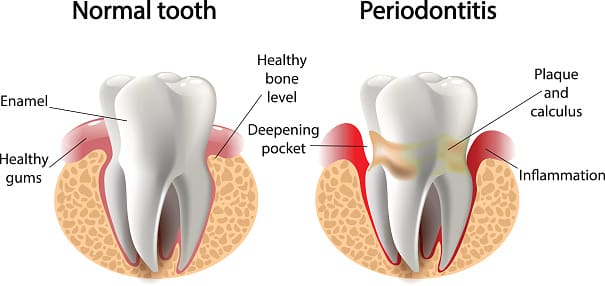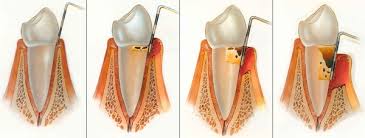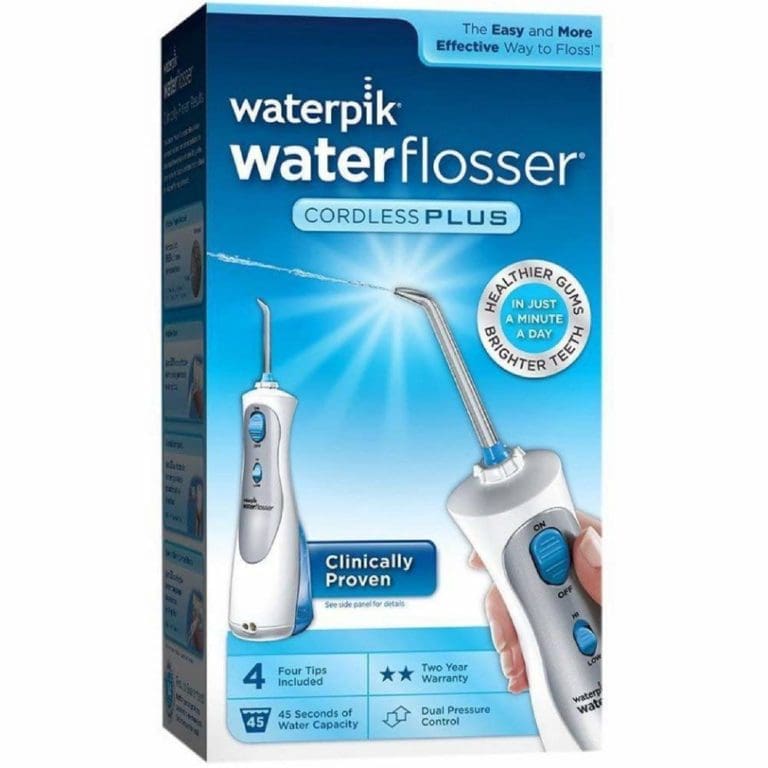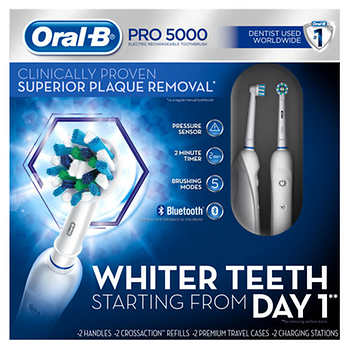
Periodontal Dentistry
WHAT IS PERIODONTAL DISEASE?
Periodontal disease is an infection around the teeth which can include the gum tissue, ligaments and bone structures. In the beginning stages of periodontal disease, gingivitis, the infection is localized to the gum tissue.
WHAT ARE THE SYMPTOMS OF PERIODONTAL DISEASE?
- Swollen, tender or bright red gums
- Receding Gums
- Bad Breath
- Painful Teeth
- Loose Teeth
- Tooth Loss
WHAT IS THE TREATMENT FOR PERIODONTAL DISEASE?
At Dorothy Lane Dental we have highly trained dental hygienists that can perform Scaling and Root Planing depending on the stage and the progression of the disease to help control and manage the disease for long term success, along with patient compliance. In more advanced cases the patient may need to be seen by a Periodontal Surgeon to have bone grafting, tissue grafting and / or gingival flap surgery.


WHAT IS SCALING AND ROOT PLANING?
The scaling and root planing procedure allows our dental hygienists to clean above and below the gum line to remove plaque and tartar build up. During this procedure the dentist or the dental hygienist will administer local anesthetic to keep you comfortable during the procedure. The dental hygienist will then use specialized tools such as hand instruments life periodontal scalers and a curette and often times and ultrasonic to get underneath the gum line into the periodontal pocket and remove calculus and plaque. During the procedure our dental hygienists may use Chlorhexidine rinse to irrigate the pockets, which is a bread-spectrum antimicrobial rinse. There are also cases in which the placement of Arestin which is a site specific antibiotic minocycline will be needed.
FOLLOW UP CARE AFTER SCALING AND ROOT PLANING
Once treatment has been completed we recommend the use of an Oral-B electric toothbrush as well as a WaterPik to help maintain good oral home care. It is also very important that after your procedure is completed you follow up with our dental hygienists three to four times a year for periodontal maintenance cleanings and clos monitoring of your pocket depths.


WHAT CAN I DO TO PREVENT PERIODONTAL DISEASE?
- Daily brushing and flossing when done correctly can help to remove most of the plaque from your teeth
- Professional cleanings by your dental hygiene at least once every six months will keep the plaque under control in places where it is difficult or a tooth brush to reach.
WHY IS THE TREATMENT OF PERIODONTAL DISEASE SO IMPORTANT?
In recent years many studies have shown that periodontal disease can be linked to many other health conditions such as:
- Heart Disease
- Stroke
- Diabetes
- Respiratory Disease
- Premature Birth
We’re here to help. Contact Us!
